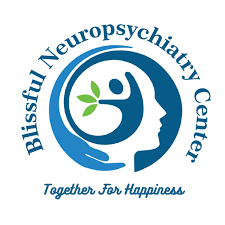Have you ever encountered someone who believes they are the best, that no one compares to them?
Someone who thinks they are so powerful, the world wouldn’t function without them? Do you know people who believe they are bigger than anyone else, perhaps even almighty like God? If you see such traits in those around you, they might be symptoms of Narcissistic Personality Disorder (NPD).
Basically, there are two types of narcissism. One is considered healthy. For instance, when children proudly exclaim, “How good I am! How strong I am!” That’s a positive, energizing expression that fosters positive vibrations. Similarly, we often hear people in society declare, “I want to change this country, I want to change this society, and I will do it this way.” While this is done for the benefit of society, it can also stem from a healthy sense of self-belief.
However, unhealthy narcissism emerges when you attempt things beyond your capability, or when a feeling like “no one has a body like mine, no one is as intelligent as me, no one is as good as me” starts to bother you, and you refuse to listen to anyone else. This is where it becomes unhealthy.
Culturally, we can find examples of these traits in figures like Ravana from the Ramayana, who constantly felt he was invincible, and Duryodhana, who similarly believed no one could defeat him. These characters illustrate the extreme end of this personality spectrum.
Diagnosing Narcissistic Personality Disorder
How is NPD diagnosed?
For a diagnosis of narcissistic personality, the individual must be at least 18 years old, as it’s a personality disorder. If certain symptoms are present, we can identify a narcissistic personality. For example:
- A grandiose sense of self: Some people genuinely believe that merely speaking to them is a stroke of luck for others.
- Living in a fantasy world: They may fantasize about having immense money, power, and influence, even when they possess none of these. Yet, when they speak, they always convey a sense of being very special and unique.
- Constant need for praise: They constantly crave validation and admiration from others and are especially pleased by those who flatter them.
- Sense of entitlement: They believe they are powerful and intelligent, leading to severely damaged interpersonal relationships.
- Exploitative behavior: In family dynamics, a husband with NPD might oppress his wife, engaging in gaslighting—making her believe she’s at fault even when she isn’t, destroying her self-esteem, and making her and even their children feel guilty. In a patriarchal society like Nepal, this trait is particularly evident in some fathers.
- Lack of empathy: They struggle to understand others’ feelings or emotions, even when someone is clearly distressed.
- Envy and arrogance: They may feel intense jealousy and subsequently become arrogant and proud.
A diagnosis of narcissistic personality disorder is indicated if five out of these nine characteristics are present. However, this information is not a self-diagnosis. You should consult a doctor for a professional discussion and diagnosis.
Path to Solution: Addressing Narcissistic Tendencies
Now, you might wonder if anything can be done about this personality from home. When considering a solution, it’s important to understand that self-confidence and narcissism lie on a very fine line. It might seem confusing how positive thinking and daring to achieve could be wrong. Distinguishing this fine line is a complex question in itself.
Here’s what can be done:
- Praise others: Make it a habit to praise others in addition to praising yourself. This can significantly reduce narcissistic tendencies.
- Evaluate relationships: Reflect on how your relationships have been affected over time. If your actions are deteriorating your relationships rather than just your work, and if it’s impacting your decisions, understand that these problems might stem from your personality or character.
Finally, I’ll conclude today’s session with a story. A patient told their doctor, “Doctor, everywhere I touch, it hurts. Wherever I touch with my finger, it hurts.” The doctor examined everything and then said, “The problem isn’t with your body; it’s with your finger.”
Similarly, the day we realize that the problem lies within ourselves, not with others, and we make an effort to change our nature, character, and personality, that’s the day we can begin to emerge from our narcissistic tendencies.




